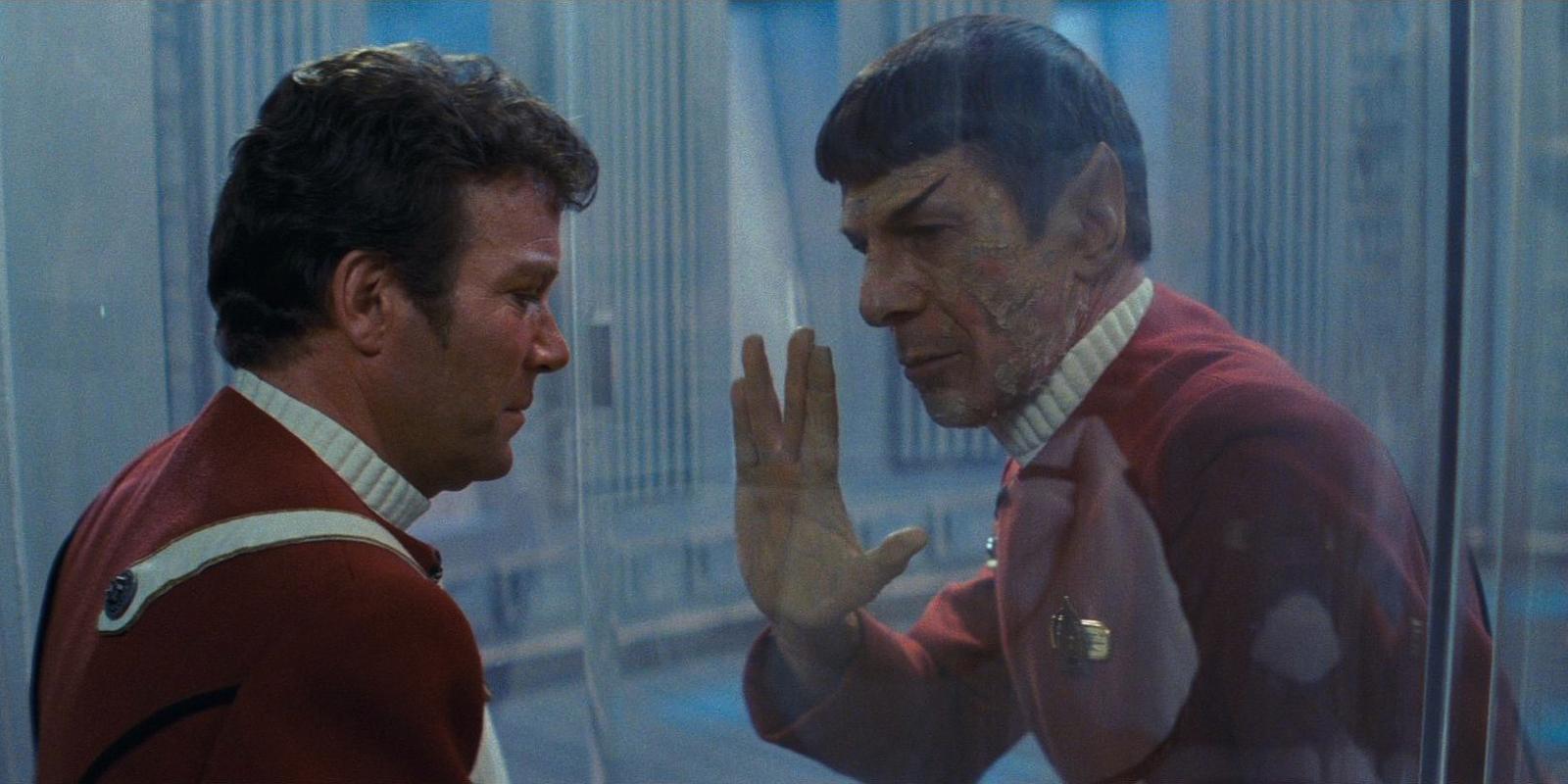
After the original three-season run of Gene Roddenberry’s Star Trek on NBC television, it looked highly unlikely that there would be any more of it to come. After so many episodes, ideas had run out and the show was stuck, as the USS Enterprise had been so many times, without even impulse power to drive it forward. Only Roddenberry kept the torch burning for a continuation.
A few years and the miracle of syndication later and executives throughout the land were salivating at the prospect of more adventures of Captain Kirk and his crew. Reruns of the show had become very popular indeed and Paramount Pictures, owners of the rights, decided they wanted to fire up those warp engines another time.
This began in 1975, with the studio trying to get Roddenberry on board for a film. After a couple of years, the film idea was scrapped in favour of another TV show. Then something called Star Wars happened and all of Hollywood started to search for viable movie ideas to cash in on its success. Of course it wasn’t just Star Wars.
Spielberg had made it big with spaceships and aliens in his film, Close Encounters of the Third Kind. The time was right for Star Trek to come to the big screen. The studio already had a pilot episode written for a new series and that was fleshed out into what became Star Trek: The Motion Picture, released in 1979. Since then, the film series has gone through two different crews, a hard reboot and many ups and downs.
Some of the films have been big hits: enjoyable space adventures garnering critical acclaim and a huge following; others have been acceptable diversions with a lovable cast and others… Well, others should have been condemned to Ceti Alpha V. This list travels from the regrettable lows to the dizzying highs of the Star Trek movie franchise.
13. Star Trek: Generations (1994)
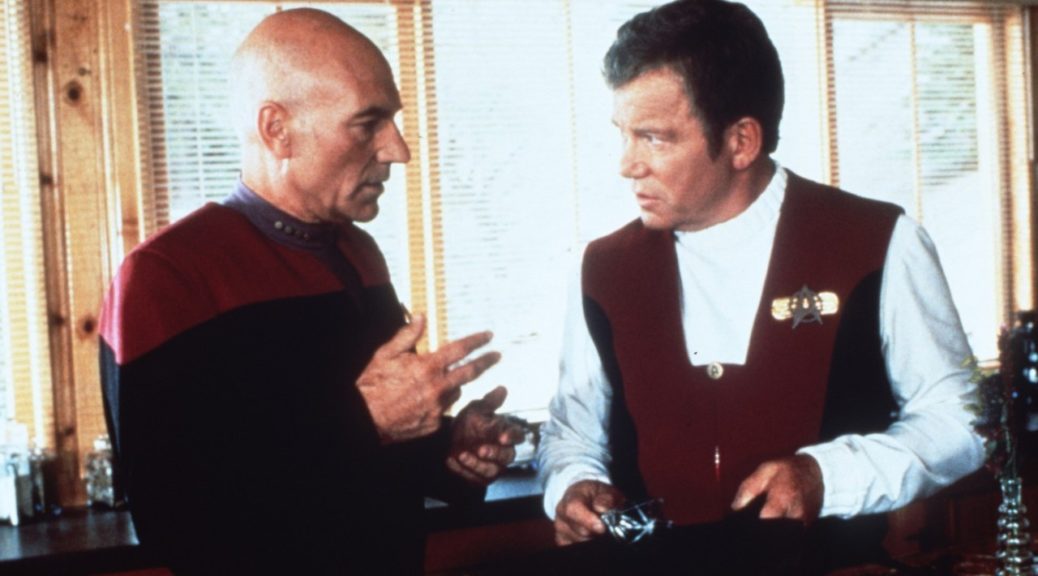
The worst thing about Generations is that it tries to be all things and ends up being nothing. It’s a ham-handed attempt to hand the torch over from Kirk’s crew to Picard’s which ends up being poor service to both. The script is flabby and feels like an over-extended episode of the TV show, the villain played by Malcolm McDowell, lacks any charisma or gravitas and the meeting between Kirk and Picard is so underwhelming that it seems like a complete waste of time. It’s a far cry from Pacino and De Niro in Heat, let’s put it that way.
In fact, the idea of bringing in the alternate universe or Nexus ribbon where Kirk is alive and riding horses feels like the biggest cheat imaginable. After setting the film up with his heroic sacrifice, he is then re-introduced for no other reason than to provide us with this pointless climax; the two captains working together to defeat Malcolm McDowell, just so that he can die again. Because of a very clever Internet marketing campaign – it was the first to ever have its own website for publicity – the film did reasonably well on its release but received mixed reviews, with some critics rightly decrying the lack of originality and poor writing.
Roger Ebert said of the film, “the starship can go boldy where no-one has gone before, but the screenwriters can only do vice versa.” The special effects of the film are a slight saving grace and they feel like a distinct upgrade from what was on offer on television screens for the Next generation crew’s adventures. Altogether, though, this film is best sent into the Nexus.
12. Star Trek V: The Final Frontier (1989)
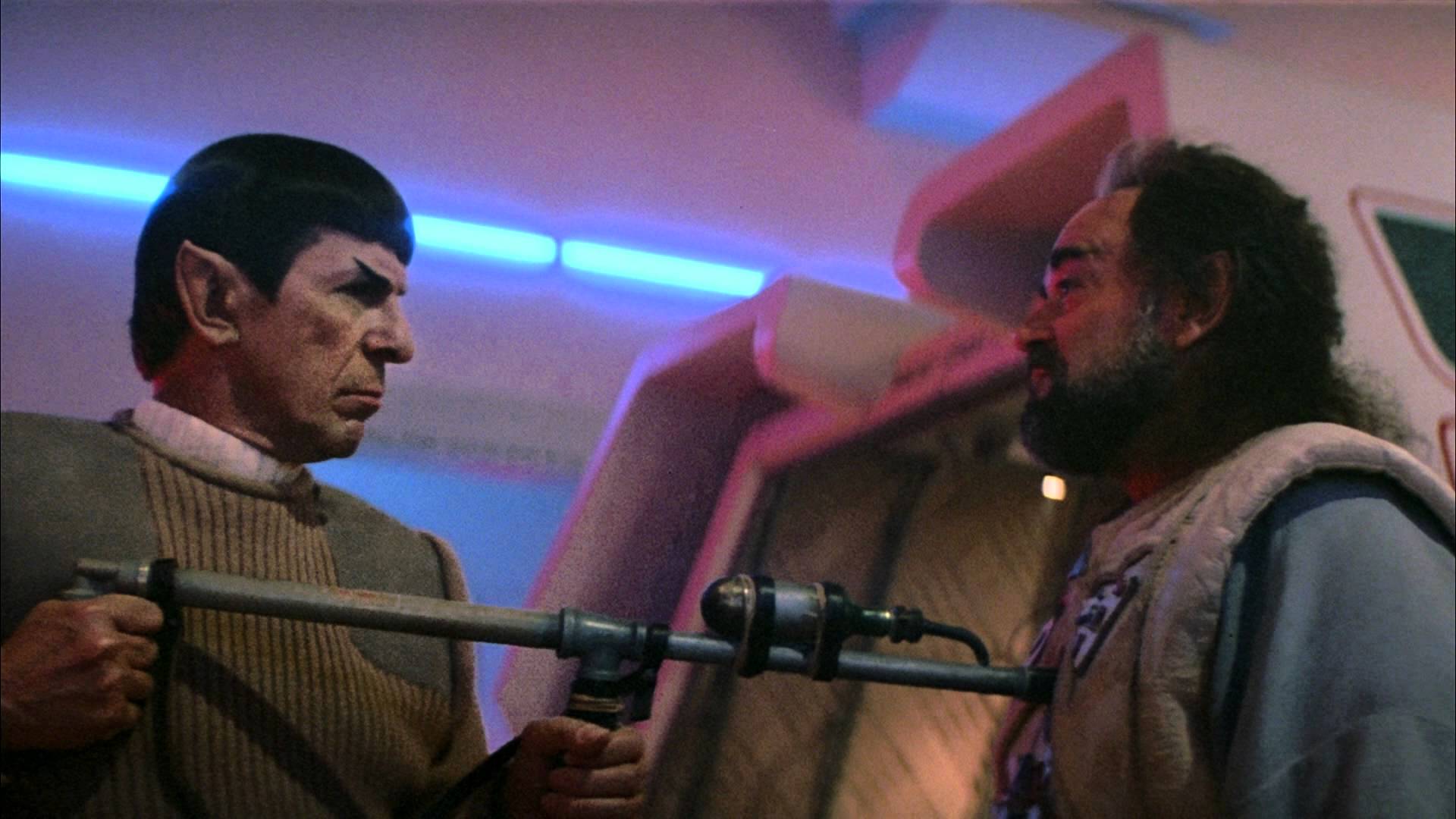
This film will forever be known as ‘the one where the Enterprise goes to find God’. There are some interesting ideas at its core but they are lost in a sea of badly executed comedy, side characters who, despite great pomp, offer nothing to the plot and the lack of any real antagonist or even real danger.
The problem with this film is that it completely lacks direction. The first act seems to go on for an eternity and nothing happens. Kirk, Spock and McCoy are out camping in Yosemite, during which time some diplomats are kidnapped on a dusty desert planet for the sole purpose of luring the Enterprise. This is all so that it can be commandeered by Spock’s half-brother and taken off on a voyage past the “Great Barrier.” It’s awful when people bring up continuity, but one has to wonder why such a barrier was never before mentioned in any Star Trek episode.
That aside, the journey there begins to promise much. The exploratory spirit at the heart of Star Trek is about to get its biggest ever adventure, albeit near the end of the film. What the viewer gets, once past the barrier is, in effect, a poor rip-off of The Wizard of Oz. Indeed, featuring an entity with the power capable to orchestrate all these events, one has to wonder, what DOES it need with a starship?
In conclusion, the film suffers from too much knowing reverence of its history, too much focus on giving everyone a turn and a seeming phobia of getting down to business, deciding instead to spend too much time in meaningless navel-gazing. As a result, it turned people off and managed to take only half of what The Voyage Home took at the Box Office.
11. Star Trek: Insurrection (1998)
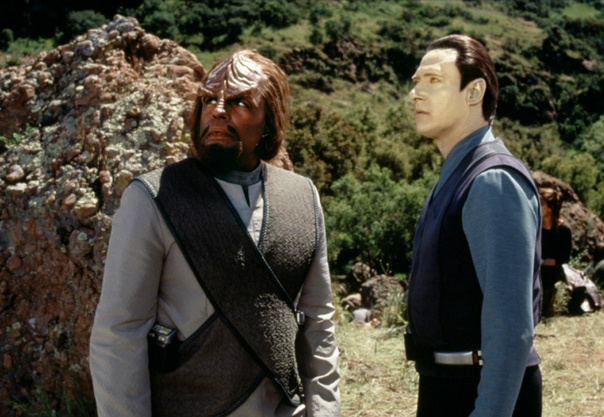
There’s a nice little idea at the centre of Insurrection. The problem is that it is too little to make for a grand space adventure. This, more so than any other film in the series, feels like an extended TV episode. Not one of the good episodes, either. Data exposes a conspiracy amongst the Federation to break their own first rule and strip a civilisation of their simple lives. This would have made for a great episode. It has a strong core idea and a nice ‘duty versus morals’ debate at its heart in a Lance Corporal Harold Dawson kind of way.
The script went through several rewrites on its way to production. The studio wanted a change of pace after First Contact and its all-out battle with the Borg. Several things were changed along the way after test screenings and this is part of the problem. Insurrection seems very much like a film made by committee. Despite the central idea, there seems to be no clear driving force through the film.
Director Jonathan Frakes does a good enough job, as does the always watchable Sir Patrick Stewart, but it seems like the film just meanders along through its required points until it ends, leaving nothing to provoke further conversation once the audience leaves the theatre. The best thing once can say about the film is that it does hearken back to the original roots of Star Trek and sacrifices massive spectacle for a very human story.
10. Star Trek: Nemesis (2002)
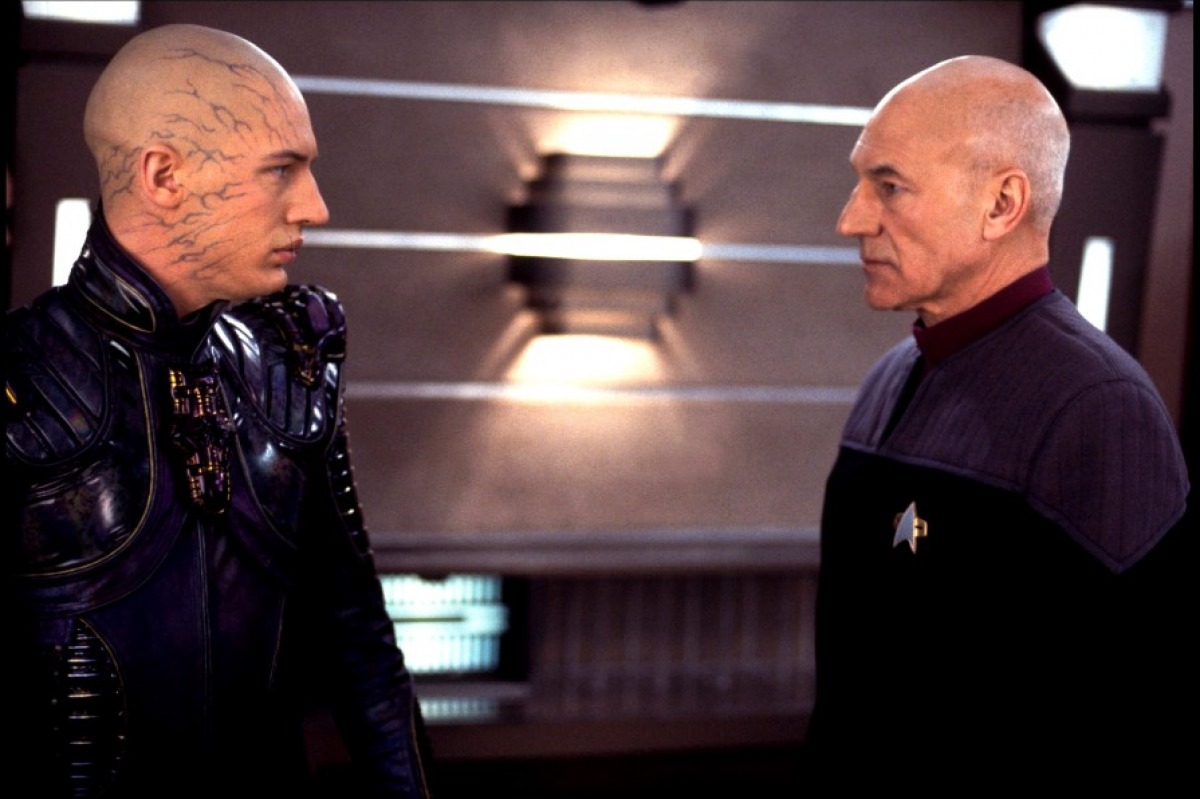
There are a lot of lists where this film comes dead last. There seems to be a lot of hate out there for the last of the Next Generation crew’s films. In all honesty, I can’t see how this can possibly be perceived as worse than those above.
There is a tight little plot which has some interesting themes such as nature versus nurture and confronting the mistakes of one’s youth. The action scenes are well done and there are some good flashes of villainy in Tom Hardy, excellent as the young Picard clone who has had a very different upbringing. Sir Patrick Stewart does a very good job of conveying the emotions of seeing what you could have become were it not for certain advantages.
It is a shame that certain plot strands are not explored fully and seem to exist only to serve a purpose later on. Chief among these is the highly unsettling mind-assault committed on Counsellor Troi. This is a horrible scene which sets up a very worrying side of our antagonist. This, however, is set aside for ages, never being explored again until the plot calls for it to be useful again. This cheapens the experience greatly and makes the scene seem like exploitation. Also, the plot does lean heavily on other, better films in the franchise for its inspiration.
In particular, there is the “peace with old enemies” trope that was used much more effectively in The Undiscovered Country. Also, the introduction of another Data adds very little to the plot beyond being a convenience later on and it also leads to far too much screen time for Brent Spiner as opposed to the rest of the crew.
9. Star Trek Into Darkness (2013)
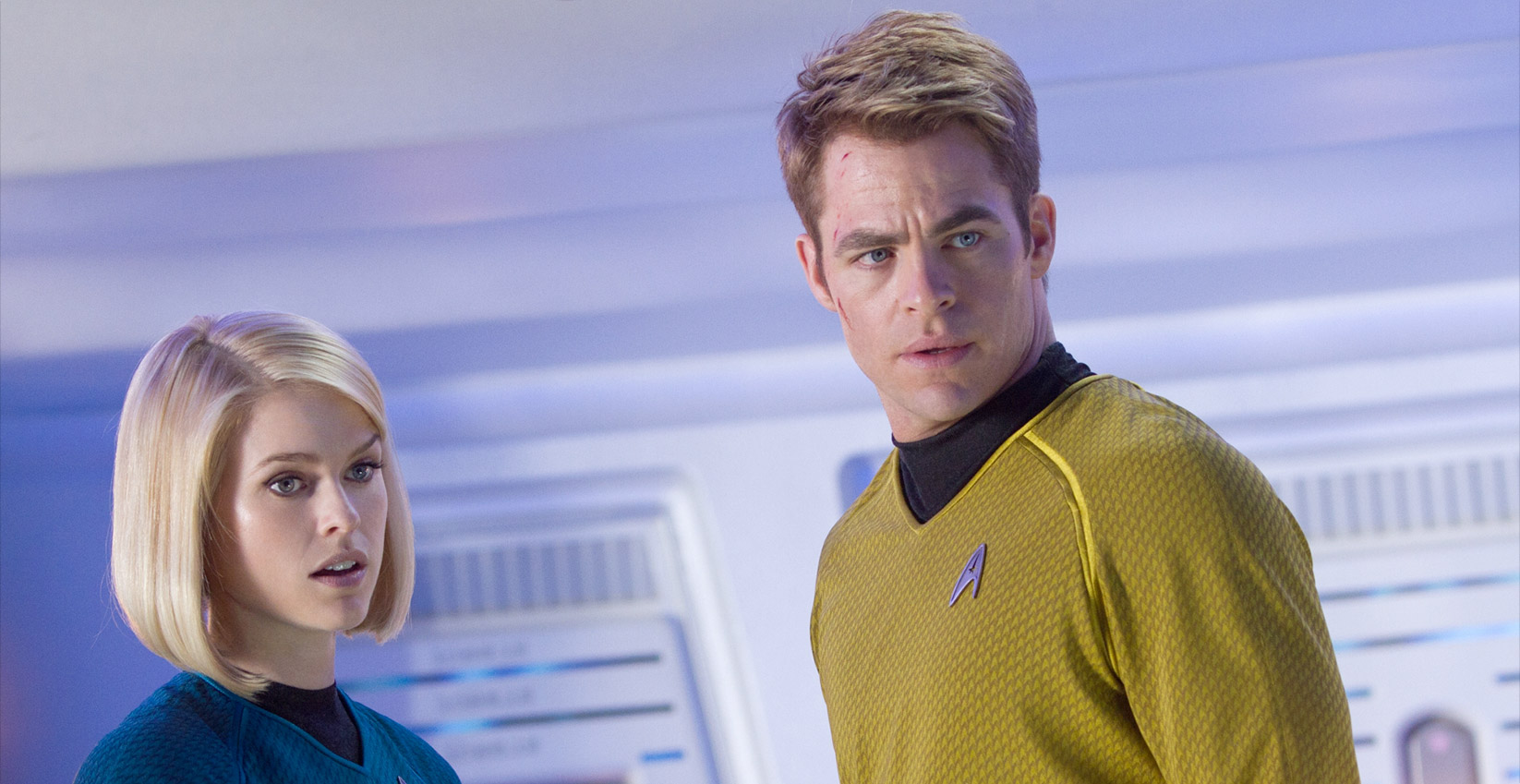
Not since Spock jammed with a hippie band in the original series has the pulse of popular culture been so critically misread. All of the buzz surrounding this film was centred around the character played by Benedict Cumberbatch and whether or not it would be a revisiting of the Khan story. Everybody knew that it was and yet the production team chose to shroud it in an awkward secrecy that no-one quite believed. The final reveal had all the emotional punch of that other misjudged effort at retreading old ground from two years later: the unveiling of Christophe Waltz as Blofeld in Spectre.
The attempts to subtly rework old mythology that had worked so well in Abrams’ first effort fell flat as too many aspects of the original Khan plot were reworked, reversed and run through a bizarre mirror leaving nothing but confusion. Khan worked so well because it was a way of showing Kirk that he had made a mistake in the past and forcing him to live with the consequences. In this reboot, the audience have cause to feel more empathy and compassion for Cumberbatch’s villain than is planned for.
We are built into this picture only to have the rug pulled from beneath our feet as the real villains are unveiled. Worse than that, the film then clumsily attempts to slide the rug beneath us again in the hope that we can get back on board. It’s such a shame that the producers felt that this was the way to go after Abrams’ brilliant first effort. They had done all the groundwork to boldly relaunch the franchise only to take a massive backward step into over-reverent homage.
8. Star Trek: The Motion Picture (1979)
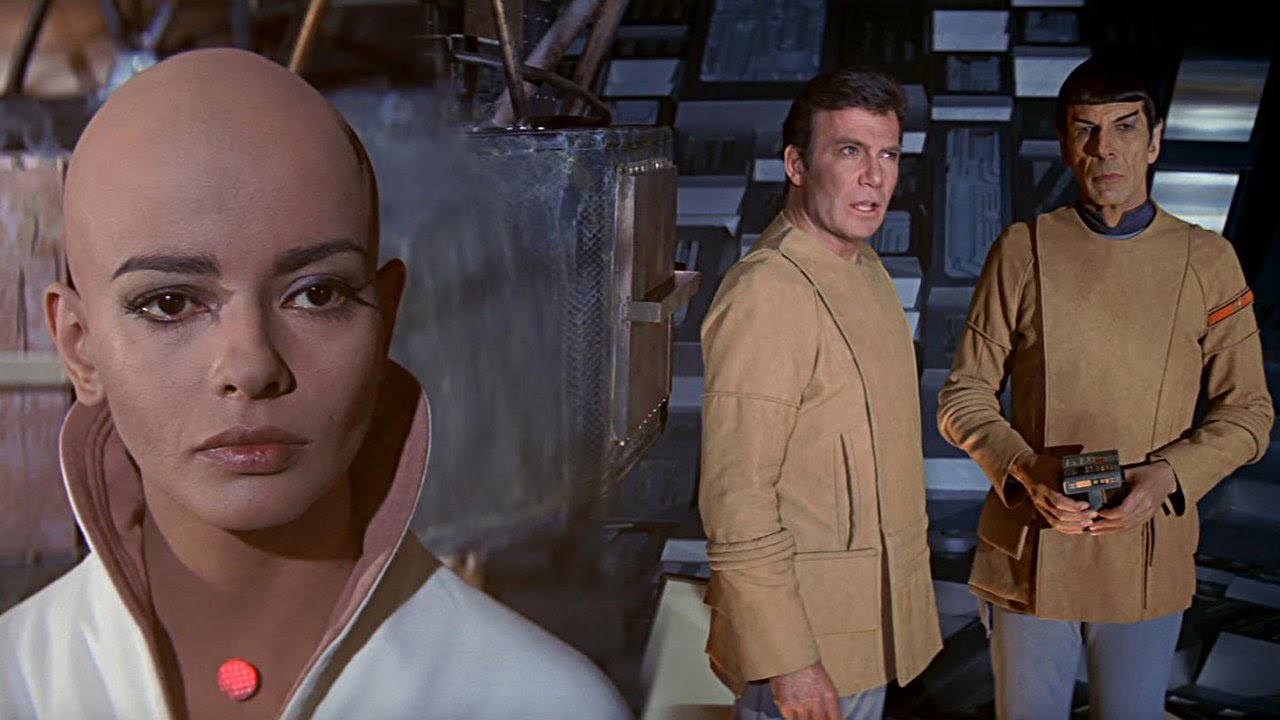
There is a lot to like about the first Star Trek film. The central premise is a very good one and the visuals are stunning in places; the cast are still fresh and the situation has enough menace to make the setup quite powerful.
The problem however, is that this very rarely feels like a Star Trek film. We spend far too much time with characters that should be on the outside looking in rather than the other way around. Commander Decker is a constant irritant thrown in only to highlight Kirk’s time away from command, which could have been dealt with far more simply, and Lieutenant Ilea serves only to wait around in order to become a cipher for the Vger figure at the heart of the narrative.
The real problem with the film is how it lacks any of the necessary pace to be considered an adventure. There are agonisingly long visual sequences that are intended to show the size and depth of Vger but offer nothing in building tension. There is also an extended love letter to the USS Enterprise in the form of an excruciatingly long drydock sequence; every angle of the ship explored ad nauseum. It would have been far better to spend the time showing the ship in action as opposed to gazing at it as it sits motionless over the Earth.
The film could have been cut down to a shorter running time and lost nothing of its narrative punch. Jerry Goldsmith’s score is wonderful and there are some great musical interludes which add something to the effect of the film, however the action in the film never quite lives up to the bombast and power of the score.